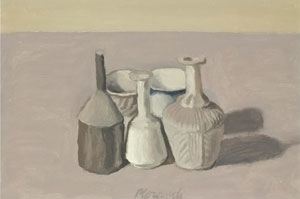This is the post in which over the next few months I will compile some of the reviews of The Teleportation Accident
UK
Longlisted for the Man Booker Prize 2012
"Terrific... Brilliant... If there was ever any worry that he might have crammed all his ideas into his first book, the prize-winning Boxer, Beetle, this makes it clear he kept a secret bunker of his best ones aside." – Joe Dunthorne, The Guardian
"A hectic extravaganza... Pyrotechnical... violently clever... Impressive... funny... Frantically entertaining... Extraordinary ingenuity." –
The Sunday Times
"Strange and brilliant... Blisteringly funny, witty and erudite... An excellent read." – Emma Hogan,
The Daily Telegraph
"Hilarious... seriously intelligent and seriously funny at the same time." – Tim Martin,
The Daily Telegraph
"A glorious, over-the-top production, crackling with inventive wit and seething with pitchy humour... A beguiling success... Ingenious... There is such an easy felicity in Beauman's writing and such a clever, engaging wit... that one feels he could write something as much fun every two years. The prospect of which makes me very, very happy indeed." -
The Scotsman
"Just as crazily original [as
Boxer, Beetle]... Beauman's writing is dazzlingly inventive; this has been longlisted for the Man Booker and I'd love it to win." –
The Times
"Ingenious... Funny... Popping with ideas, fizzing with vitality, and great fun." –
The Independent on Sunday
"Very clever and charming... Gloriously bizarre." –
The Sunday Telegraph
"Funny and startlingly inventive... Beauman is undoubtedly a writer of prodigious talent, and there are enough ideas and allusions and comic set pieces in this work... to fill myriad lesser novels." –
The Financial Times
"Very funny... Glorious." –
The Independent
"Super." –
The Observer
"Stylistically radical... Virtuosic... An unquestionably brilliant novel, ribald and wise in equal measure... Witty and sometimes deeply moving." –
Times Literary Supplement
"I love Ned Beauman’s novels, especially
The Teleportation Accident, which is wonderfully inventive and vivid." – Philip Hensher,
The Spectator
"Beauman is a writer of unceasing invention." –
Metro
"I hugely enjoyed [it]... Deft and witty." –
The Evening Standard
"If you care about contemporary fiction, you must read this." -
Tatler
"Less than two years after his multi-award-winning debut 'Boxer, Beetle' Ned Beauman returns with another fizzing firework of a caper, featuring as many cracking escapades as its predecessor.. . His prose is wonderfully discursive and buzzes with originality... his bold characterisations, slapstick humour, slick similes and tangential subplots are sublime. A strong, smart follow-up that proves Beauman is more than comfortable with the hype he's created for himself." –
Time Out
"One of the freshest, most exciting and darkly comic novels written in recent years... The definitive historical novel for people that detest the genre." – Dazed & Confused
"He's done it again... The verve of a young Amis... A great romp of a novel, delightful in its inventiveness" -
Prospect
"Beauman excels at both the grand, jostling structure and the individual sentence. His similes are often inspired, his dialogue is frequently hilarious, and his ability to keep all the plates spinning, as the story dashes between years and continents with a large supporting cast, is very impressive... His imaginative dexterity doesn't fail him... [His] comic craft squares up admirably with those of Waugh and Wodehouse." –
Literary Review
"Funny and deliciously deviant." –
The List
"Boxer, Beetle was a wonderful, exuberant tale... and this is even better... Hugely enjoyable." –
Word
"Remarkably clever" – Tom Sutcliffe,
Saturday Review (Radio 4)
US
"A noirish sci-fi comedic novel worth shouting about... pyrotechnic... an impressive leap forward... a high-wire act... frequently hilarious... astonishingly intricate and ultimately satisfying... explosive humour... a singular novel — singularly clever, singularly audacious, singularly strange — from a singular, and almost recklessly gifted, young writer. This is not fiction for everyone. But for those who stick with it, it’s a wild and wonderful ride." –
Time
Grade A.
"Wildly inventive... Fiendishly clever... This fizzy novel is a great time machine all its own... Every generation gets the hipster satire it deserves. But this one's for every generation." –
Entertainment Weekly
"Endlessly witty and furiously inventive... Consolidates the 27-year-old Beauman’s stature as a formidably accomplished writer... Beauman flaunts an almost indecently pleasurable way with words... Dazzling entertainment... Brilliantly clever." –
Washington Post
"Gobsmackingly clever." –
Vanity Fair
"Uproarious." –
The New Yorker
"Brilliantly written... Prose so odd and marvelous that every few pages I had to stop and reread a passage." –
NPR
"Inspired... Beauman has an unflagging imagination and an indefatigable gift for comedy. His overstuffed (in a good way) novel comprises memorable comic dialogue and hilarious set pieces." –
Publisher's Weekly
Starred review. "Brilliant." –
Booklist
"A fast-paced, witty and refreshingly rich tale." –
Philadelphia City Paper



